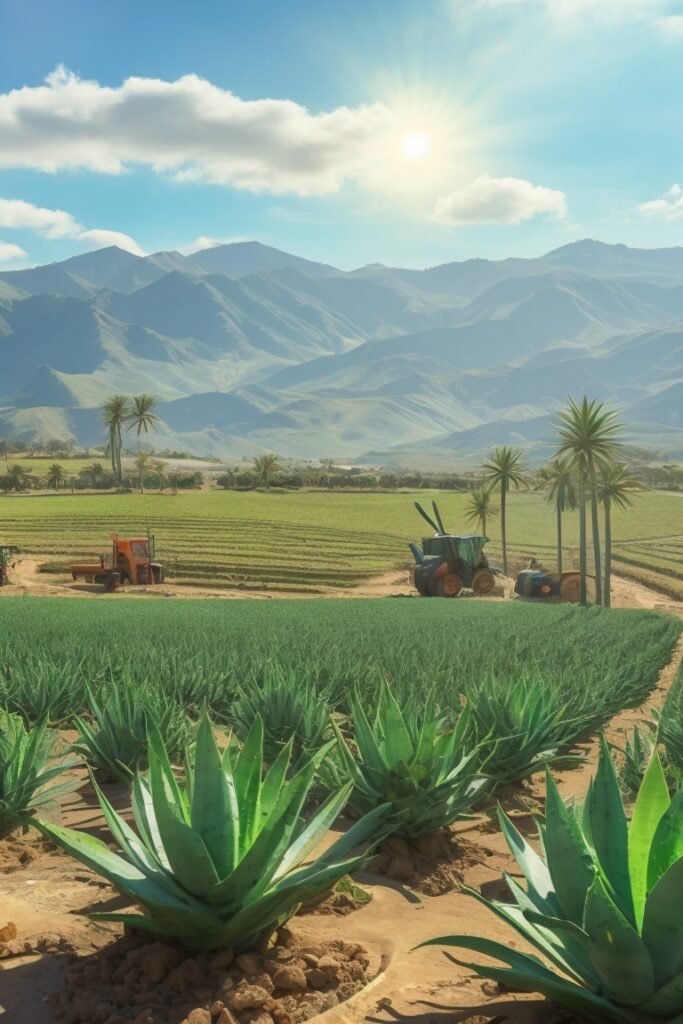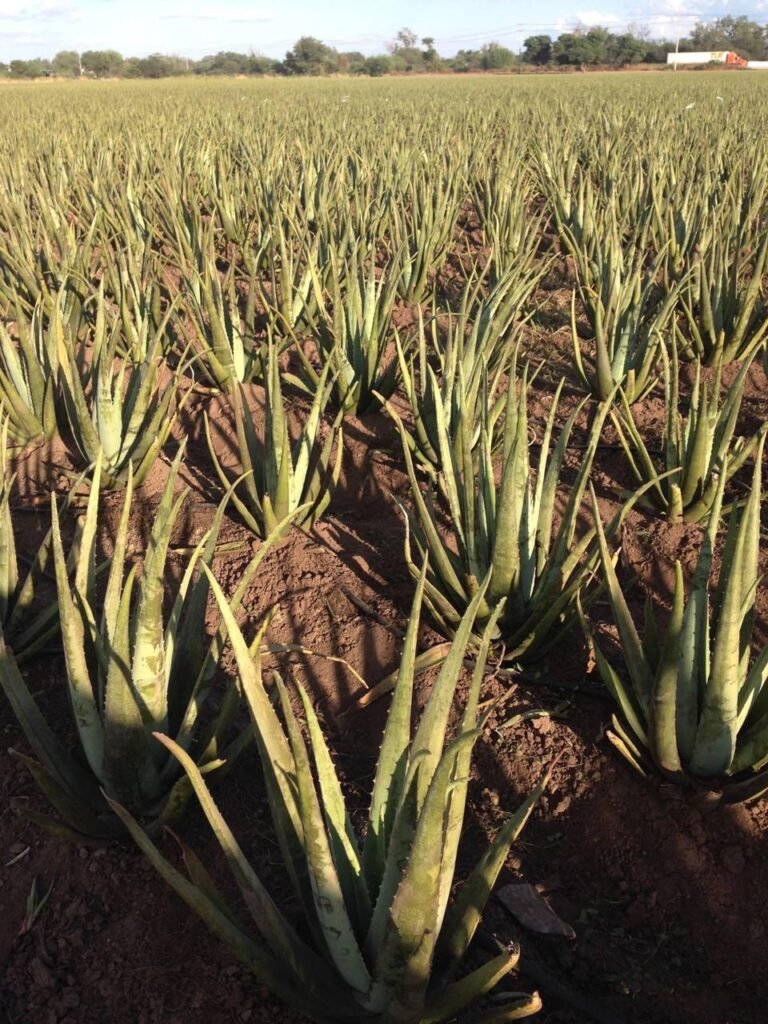Aloe Based Ideas, Projects and Solutions for Greener Cities
Aloe Vera has many potential applications in promoting green cities. Aloetrade America offers ideas, projects and solutions for cities around the world interested to become greener with plant based solutions.
We offer a range of products and services for cities trying to become green or to green cities improving their sustainable services or infrastructure. In all cases, our aloe-based solutions are integrated to the green infrastructure for the final benefits of their residents.
These projects are accomplished through either the provision of technical assistance services or through the supply of aloe based products to cities, towns or related contractors or subcontractors.
GREEN AND SUSTAINABLE ALOE BASED SOLUTIONS FOR CITIES
1. Green and Sustainable Aloe Based Solutions for Cities
Sustainability has emerged as a major public policy issue facing countries and cities throughout the world. Aloe based solutions, formulations and products are a green option for those cities looking for sustainability programs and projects. Those cities searching for zero emissions may find aloe an excellent option and Aloetrade America an excellent partner to improve the sustainability and carbon footprint.
Aloetrade America may either supply aloe products, aloe formulations and aloe plants in large quantity or assist municipalities and/or local governments to establish aloe plantations for ultimate use in these kind of projects.
We offer technical assistance services in the following areas:
A. Air purification
Aloe vera is a natural air purifier and can be used to improve indoor air quality in buildings, be public or private buildings. The plant is able to absorb harmful chemicals and pollutants, such as formaldehyde, benzene, and carbon monoxide, and release clean oxygen into the air. Some studies have suggested that aloe vera plants may be effective at removing certain pollutants from the air, such as formaldehyde and benzene, which can be found in common household products and materials. These pollutants can have negative health effects when present in high concentrations.

One study published in the journal Environmental Science and Pollution Research found that aloe vera plants were effective at removing formaldehyde from the air in a laboratory setting. Another study published in the Journal of Hazardous Materials found that aloe vera plants could reduce the levels of benzene in the air.
While these studies show some promise, it is important to note that the effectiveness of aloe vera plants as air purifiers may vary depending on factors such as the size of the room, the amount of pollutants present, and the size and health of the plant population.
Aloe based solutions can help to create more sustainable and green cities by improving air and water quality, conserving resources, promoting biodiversity, and creating more green spaces.
Several studies focused on the relationship between air pollution reduction and urban plants. Yang et al. (2005) measured the total annual air pollutant absorption by green roofs in Chicago. They demonstrated that 19.8 ha of green roofs removed a total of 1675 kg of air pollutants every year. Nowak et al. (2006) evaluated the effect of US urban trees on decreasing the annual air pollutant.
Aydin Shishegaran et al (2020) expressed on the Report “Effect of plants on an environment with high carbon dioxide concentration” that the results show that not only Aloe Vera decreased the CO2 concentration, but it also decreased the humidity more than other plants. In addition, this plant released CO2 less than other plants after CO2 absorption for a period of 16 h. Therefore, they proposed use of aloe vera for decreasing CO2 concentration and the global warming problem.
B. Water conservation in landscaping
Aloe vera is a drought-resistant plant that requires very little water to grow. It can be used in landscaping to create green spaces that are both beautiful and water-efficient.
Aloe vera plants are known for their ability to store water in their leaves, making them fairly drought-tolerant and able to survive in dry, arid conditions with minimal watering, making them a good choice for water conservation efforts.
When planted in a garden or outdoor space, aloe vera plants can help to reduce water usage by requiring less frequent watering than other plants. This is because aloe vera plants store water in their leaves and are adapted to thrive in hot, dry environments.
Local governments may develop these landscaping projects and we can supply large volume of aloe plants for it or to assist in developing aloe farms to obtain the plants for these kind of projects.

C. Green infrastructure
Aloe vera can be used in green infrastructure. Aloe vera can be used in green roofs and walls to help absorb rainwater, reduce heat island effects, and promote biodiversity in urban areas. Its ability to thrive in low-water conditions also makes it an ideal plant for green infrastructure projects in arid regions.
Aloe vera can be used as a component in green roofs, which are roofs that are covered with vegetation. Green roofs can help to reduce urban heat island effects, absorb rainwater, and provide habitat for wildlife.
Green roofs and walls are designed to support vegetation, such as grasses, herbs, and other plants, on the roofs of buildings or walls. One of the key factors to consider when selecting plants for a green roof or wall is their ability to tolerate heat and drought. Aloe vera is adapted to grow in hot, arid environments.
Local governments may create programs for building owners and we can assist by supplying large volume of aloe plants.

D. Urban farming
Aloe vera can be grown in urban farming systems, such as vertical gardens or in specific nearby rural areas, to produce food and promote local food production. Aloe vera is an edible plant and may be eaten as aloe cubes, aloe fillets, and aloe juice can be combined with many other fruits for drinks and smoothies, bringing many health benefits.
Aloe vera can be a useful plant to include in urban farming practices, as it is a hardy plant that requires minimal care and can provide a range of benefits.
One of the primary benefits of growing aloe vera in an urban farming setting is that it can be used as a natural remedy for a range of health issues. Aloe vera gel is often used topically to treat sunburn, minor cuts and burns, and other skin irritations. Additionally, aloe vera gel can be ingested as a juice or added to smoothies to promote digestive health.
Aloe vera is also a useful plant for purifying the air, as it has been shown to absorb pollutants such as formaldehyde and benzene from the air. This can be especially beneficial in urban environments, where air pollution can be a significant health concern.
Finally, aloe vera plants can be used to help conserve water in urban farming settings, as they require minimal watering and can survive in hot, dry conditions. This can be especially important in areas with limited access to water or where water conservation is a priority.
Overall, including aloe vera in an urban farming setup can provide a range of benefits, including natural health remedies, air purification, and water conservation. Additionally, aloe vera plants can be an attractive addition to urban farming spaces, adding visual interest and texture to gardens and green spaces.
We may supply aloe plants in large quantity or assist to establish urban or rural aloe plantations for any city or town.

E. Green waste management
Aloe vera can be used in composting systems to help break down organic waste and create nutrient-rich soil for plants.
Aloe vera can be used as a natural treatment for green waste, such as kitchen scraps and yard waste, in a process known as vermicomposting. Vermicomposting is a type of composting that uses worms to break down organic matter into nutrient-rich soil amendments. Aloe vera plants can be added to vermicomposting bins or piles as a food source for the worms, as they contain a range of nutrients and organic compounds that can support healthy worm populations.
Additionally, aloe vera gel can be used as a natural ingredient in compost teas, which are liquid fertilizers made by steeping compost in water. Compost teas can be used to provide nutrients to plants and improve soil health, and the addition of aloe vera gel can help to enhance the nutritional content of the tea.
We offer aloe gel for these purposes and specific products for use in landfills.

F. Green and sustainable bio fertilizers and bio pesticides
Aloe vera can be used to create natural fertilizers. Its gel and leaves contain nutrients that can be used to enrich soil and promote plant growth, reducing the need for chemical fertilizers.
Aloe vera can be used as a natural pesticide. Its gel and leaves contain compounds that repel insects and pests, making it an eco-friendly alternative to chemical pesticides.

G. Technical Assistance Services for Green Cities
Investment Projects for Green Solutions to Cities
Aloetrade America develops Investment Projects (mainly as Feasibility Studies or Business Plans) to large and medium cities interested to become green and sustainable in some areas where aloe based solutions are an option.
We may develop investment projects and turn key projects to build aloe processing industrial facilities under our proprietary technology, to process aloe and other plants and transform them in green products for use at municipal facilities or infrastructure.
2. Green Products for Green Cities
Aloetrade America supplies aloe based products used in daily municipal operations thus replacing hazardous, pollutant and even carcinogenic chemical raw materials or supplies.
We supply products for the following areas of interest:
A. Green and Sustainable products for water purification
Aloe based products are a green and sustainable option for water purification and potabilization. Aloe has been shown to have several potential benefits for water purification and potabilization, including:
Natural coagulation agent: Aloe vera contains polysaccharides that can act as a natural coagulation agent, helping to remove suspended particles from water.
Antimicrobial properties: Aloe vera contains compounds such as anthraquinones, acemannan, and aloin that have been shown to have antimicrobial properties. These compounds may help to eliminate harmful bacteria and other microorganisms from water.
pH adjustment: Aloe vera has a pH value of around 4.5, which is slightly acidic. Adding aloe vera to water can help to lower the pH, making it more acidic and potentially less hospitable to certain microorganisms.
Reduction of chemical contaminants: Aloe vera has been shown to be effective at reducing the concentration of certain chemical contaminants in water, such as heavy metals and organic pollutants.
Odor and taste removal: Aloe vera can help to remove unpleasant odors and tastes from water, making it more palatable and appealing to drink.
It’s important to note that while aloe vera may have some benefits for water purification and potabilization, it is not a standalone solution and should be used in conjunction with other methods such as filtration, chlorination, and UV disinfection to ensure safe drinking water.
For more information please visit the specific pages of ALOE BASED SUSTAINABLE PRODUCTS FOR WATER AND WASTEWATER TREATMENT
B. Green and Sustainable products for wastewater treatment
Aloe vera has been found to be beneficial in wastewater treatment in the following ways:
Bio-adsorption: Aloe vera gel contains polysaccharides that have a strong affinity for heavy metals and other pollutants. This makes aloe vera effective at removing heavy metals and other contaminants from wastewater through a process called bio-adsorption.
Antibacterial properties: Aloe vera has natural antibacterial properties that can help to reduce the levels of harmful bacteria in wastewater. This is important for ensuring that wastewater is safe to release back into the environment.
Oxygenation: Aloe vera plants release oxygen during the day as part of the photosynthesis process. This can help to oxygenate wastewater, which is important for supporting aerobic bacteria that break down organic matter in the water.
pH stabilization: Aloe vera gel has a pH value that is similar to that of wastewater. Adding aloe vera gel to wastewater can help to stabilize the pH of the water, which is important for maintaining the health of the bacteria that are involved in the treatment process.
Overall, aloe vera can be a useful tool in wastewater treatment, helping to remove pollutants, reduce harmful bacteria, oxygenate the water, and stabilize the pH.
For more information please visit the specific pages of ALOE BASED SUSTAINABLE PRODUCTS FOR WATER AND WASTEWATER TREATMENT

C. Green and Sustainable products for desalination plants
Aloe vera gel can be used as a natural anti-scalant for desalination plants. Its properties can help prevent scaling and fouling in the membranes used for desalination, helping to increase efficiency and reduce maintenance needs.
Additionally, aloe vera gel is a sustainable and eco-friendly alternative to synthetic anti-scalants, which can be harmful to the environment. It is also readily available and easy to obtain, making it a cost-effective solution for desalination plants.
For more information please visit the specific pages for our aloe based sustainable solutions for the desalination industry.
D. Green and Sustainable Bio Fertilizers and soil improvers
We offer Aloe based soil improvers, bio fertilizers, bio herbicides and bio pesticides for urban farming projects. Totally organic project for green cities and communities.
For more information please visit the specific page of ALOE SUSTAINABLE PRODUCTS FOR AGRICULTURE – PRE AND POST HARVEST